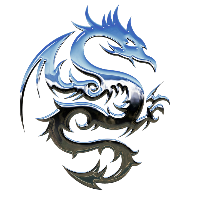LinuxCNC 2.8 pre (latest), 7i96
- ikkuh
-
 Topic Author
Topic Author
- Offline
- Elite Member
-

- Posts: 272
- Thank you received: 47
Had a machine as a spare, installed LinuxCNC and a 7i96 card. Worked fine. Forgot about the machine until this weekend when my chinese BOB's failed. So I thought I take the new machine and wire the steppers over. Installed the machine, ran all the updates for Debian aswell as LinuxCNC during first bootup.
But the new machine will not start up LinuxCNC anymore, it used to work fine at my other place.
What am I doing wrong???
Error report created by /usr/lib/tcltk/linuxcnc/show_errors.tcl:
Print file information:
RUN_IN_PLACE=no
LINUXCNC_DIR=
LINUXCNC_BIN_DIR=/usr/bin
LINUXCNC_TCL_DIR=/usr/lib/tcltk/linuxcnc
LINUXCNC_SCRIPT_DIR=
LINUXCNC_RTLIB_DIR=/usr/lib/linuxcnc/modules
LINUXCNC_CONFIG_DIR=
LINUXCNC_LANG_DIR=/usr/lib/tcltk/linuxcnc/msgs
INIVAR=inivar
HALCMD=halcmd
LINUXCNC_EMCSH=/usr/bin/wish8.6
LINUXCNC - 2.8.0-pre1-4655-g39977ac31
Machine configuration directory is '/home/ton/linuxcnc/configs/MESA_1'
Machine configuration file is 'MESA_1.ini'
INIFILE=/home/ton/linuxcnc/configs/MESA_1/MESA_1.ini
VERSION=1.1
PARAMETER_FILE=linuxcnc.var
TASK=milltask
HALUI=halui
DISPLAY=axis
COORDINATES=XYYZ
KINEMATICS=trivkins coordinates=XYYZ kinstype=BOTH
Starting LinuxCNC...
Starting LinuxCNC server program: linuxcncsvr
Loading Real Time OS, RTAPI, and HAL_LIB modules
Starting LinuxCNC IO program: io
Starting HAL User Interface program: halui
Found file(REL): ./MESA_1.hal
Shutting down and cleaning up LinuxCNC...
Running HAL shutdown script
Killing task linuxcncsvr, PID=2069
hm2: loading Mesa HostMot2 driver version 0.15
hm2_eth: loading Mesa AnyIO HostMot2 ethernet driver version 0.2
hm2_eth: 10.10.10.10: Hardware address: 00:60:1b:16:00:35
hm2_eth: discovered 7I96
hm2/hm2_7i96.0: Smart Serial Firmware Version 43
hm2/hm2_7i96.0: 51 I/O Pins used:
hm2/hm2_7i96.0: IO Pin 000 (TB3-01): IOPort
hm2/hm2_7i96.0: IO Pin 001 (TB3-02): IOPort
hm2/hm2_7i96.0: IO Pin 002 (TB3-03): IOPort
hm2/hm2_7i96.0: IO Pin 003 (TB3-04): IOPort
hm2/hm2_7i96.0: IO Pin 004 (TB3-05): IOPort
hm2/hm2_7i96.0: IO Pin 005 (TB3-06): IOPort
hm2/hm2_7i96.0: IO Pin 006 (TB3-07): IOPort
hm2/hm2_7i96.0: IO Pin 007 (TB3-08): IOPort
hm2/hm2_7i96.0: IO Pin 008 (TB3-09): IOPort
hm2/hm2_7i96.0: IO Pin 009 (TB3-10): IOPort
hm2/hm2_7i96.0: IO Pin 010 (TB3-11): IOPort
hm2/hm2_7i96.0: IO Pin 011 (TB3-13/TB3-14): SSR #0, pin Out-00 (Output)
hm2/hm2_7i96.0: IO Pin 012 (TB3-15/TB3-16): SSR #0, pin Out-01 (Output)
hm2/hm2_7i96.0: IO Pin 013 (TB3-17/TB3-18): SSR #0, pin Out-02 (Output)
hm2/hm2_7i96.0: IO Pin 014 (TB3-19/TB3-20): SSR #0, pin Out-03 (Output)
hm2/hm2_7i96.0: IO Pin 015 (TB3-21/TB3-22): SSR #0, pin Out-04 (Output)
hm2/hm2_7i96.0: IO Pin 016 (TB3-23/TB3-24): SSR #0, pin Out-05 (Output)
hm2/hm2_7i96.0: IO Pin 017 (TB1-02/TB1-03): StepGen #0, pin Step (Output)
hm2/hm2_7i96.0: IO Pin 018 (TB1-04/TB1-05): StepGen #0, pin Direction (Output)
hm2/hm2_7i96.0: IO Pin 019 (TB1-08/TB1-09): StepGen #1, pin Step (Output)
hm2/hm2_7i96.0: IO Pin 020 (TB1-10/TB1-11): StepGen #1, pin Direction (Output)
hm2/hm2_7i96.0: IO Pin 021 (TB1-14/TB1-15): StepGen #2, pin Step (Output)
hm2/hm2_7i96.0: IO Pin 022 (TB1-16/TB1-17): StepGen #2, pin Direction (Output)
hm2/hm2_7i96.0: IO Pin 023 (TB1-20/TB1-21): StepGen #3, pin Step (Output)
hm2/hm2_7i96.0: IO Pin 024 (TB1-22-TB1-23): StepGen #3, pin Direction (Output)
hm2/hm2_7i96.0: IO Pin 025 (TB2-01/TB2-03): StepGen #4, pin Step (Output)
hm2/hm2_7i96.0: IO Pin 026 (TB2-04/TB2-05): StepGen #4, pin Direction (Output)
hm2/hm2_7i96.0: IO Pin 027 (TB2-07/TB2-08): Encoder #0, pin A (Input)
hm2/hm2_7i96.0: IO Pin 028 (TB2-10/TB2-11): Encoder #0, pin B (Input)
hm2/hm2_7i96.0: IO Pin 029 (TB2-13/TB2-14): Encoder #0, pin Index (Input)
hm2/hm2_7i96.0: IO Pin 030 (TB2-16/TB2-17): IOPort
hm2/hm2_7i96.0: IO Pin 031 (TB2-18/TB2-19): IOPort
hm2/hm2_7i96.0: IO Pin 032 (internal): IOPort
hm2/hm2_7i96.0: IO Pin 033 (internal): SSR #0, pin AC Ref (internal) (Output)
hm2/hm2_7i96.0: IO Pin 034 (P1-01): IOPort
hm2/hm2_7i96.0: IO Pin 035 (P1-02): IOPort
hm2/hm2_7i96.0: IO Pin 036 (P1-03): IOPort
hm2/hm2_7i96.0: IO Pin 037 (P1-04): IOPort
hm2/hm2_7i96.0: IO Pin 038 (P1-05): IOPort
hm2/hm2_7i96.0: IO Pin 039 (P1-06): IOPort
hm2/hm2_7i96.0: IO Pin 040 (P1-07): IOPort
hm2/hm2_7i96.0: IO Pin 041 (P1-08): IOPort
hm2/hm2_7i96.0: IO Pin 042 (P1-09): IOPort
hm2/hm2_7i96.0: IO Pin 043 (P1-11): IOPort
hm2/hm2_7i96.0: IO Pin 044 (P1-13): IOPort
hm2/hm2_7i96.0: IO Pin 045 (P1-15): IOPort
hm2/hm2_7i96.0: IO Pin 046 (P1-17): IOPort
hm2/hm2_7i96.0: IO Pin 047 (P1-19): IOPort
hm2/hm2_7i96.0: IO Pin 048 (P1-21): IOPort
hm2/hm2_7i96.0: IO Pin 049 (P1-23): IOPort
hm2/hm2_7i96.0: IO Pin 050 (P1-25): IOPort
hm2/hm2_7i96.0: registered
hm2_pci: loading Mesa AnyIO HostMot2 driver version 0.7
hm2_eth: HostMot2 ethernet driver unloaded
hm2: unloading
Removing HAL_LIB, RTAPI, and Real Time OS modules
Removing NML shared memory segments
Debug file information:
Note: Using POSIX realtime
iptables: No chain/target/match by that name.
hm2_pci: rtapi_app_main: No such device (-19)
./MESA_1.hal:9: waitpid failed /usr/bin/rtapi_app hm2_pci
./MESA_1.hal:9: /usr/bin/rtapi_app exited without becoming ready
./MESA_1.hal:9: insmod for hm2_pci failed, returned -1
2069
PID TTY STAT TIME COMMAND
Stopping realtime threads
Unloading hal components
Note: Using POSIX realtime
Kernel message information:
[ 0.000000] Linux version 4.9.0-8-rt-686-pae (debian-kernel@lists.debian.org) (gcc version 6.3.0 20170516 (Debian 6.3.0-18+deb9u1) ) #1 SMP PREEMPT RT Debian 4.9.144-3.1 (2019-02-19)LinuxCNC.info
Date: Mon Apr 1 12:45:21 CEST 2019
UTC Date: Mon Apr 1 10:45:21 UTC 2019
this program: /usr/bin/linuxcnc_info
uptime: 12:45:21 up 12 min, 1 user, load average: 0.00, 0.14, 0.18
lsb_release -sa: Debian Debian GNU/Linux 9.8 (stretch) 9.8 stretch
which linuxcnc: /usr/bin/linuxcnc
pwd: /home/ton/linuxcnc/configs/MESA_1
USER: ton
LOGNAME: ton
HOME: /home/ton
EDITOR:
VISUAL:
LANGUAGE: en_US:en
TERM: dumb
COLORTERM:
DISPLAY: :0.0
DESKTOP: lightdm-xsession
display size: 1152x864 pixels (305x229 millimeters)
PATH: /usr/bin:/home/ton/linuxcnc/configs/MESA_1/bin:/usr/bin:/usr/local/bin:/usr/bin:/bin:/usr/local/games:/usr/games
uname items:
nodename -n: LinuxCNC-MESA
kernel-name -s: Linux
kernel-vers -v: #1 SMP PREEMPT RT Debian 4.9.144-3.1 (2019-02-19)
machine -m: i686
processor -p: unknown
platform -i: unknown
oper system -o: GNU/Linux
/proc items:
cmdline: BOOT_IMAGE=/boot/vmlinuz-4.9.0-8-rt-686-pae root=UUID=8b29b1db-4513-4c82-b7a4-f1ae803f7460 ro quiet
model name: Intel(R) Core(TM)2 Duo CPU E8400 @ 3.00GHz
cores: 2
cpu MHz: 3000.000
parport:
serial: 0000-0000 : serial 0000-0000 : serial
Versions:
gcc: gcc (Debian 6.3.0-18+deb9u1) 6.3.0 20170516
python: Python 2.7.13
git: git version 2.11.0
git commit: NA
tcl: 8.6
tk: 8.6
glade: not_in_PATH
glade-gtk2: not_in_PATH
linuxcnc_var all:
LINUXCNCVERSION: 2.8.0-pre1-4655-g39977ac31
LINUXCNC_AUX_GLADEVCP: /usr/share/linuxcnc/aux_gladevcp
LINUXCNC_AUX_EXAMPLES: /usr/share/linuxcnc/aux_examples
REALTIME: /etc/init.d/realtime
RTS: uspace
HALLIB_DIR: /usr/share/linuxcnc/hallib
dpkg -l '*linuxcnc*':
Desired=Unknown/Install/Remove/Purge/Hold
| Status=Not/Inst/Conf-files/Unpacked/halF-conf/Half-inst/trig-aWait/Trig-pend
|/ Err?=(none)/Reinst-required (Status,Err: uppercase=bad)
||/ Name Version Architecture Description
+++-===============-============================-============-=====================================================================
un linuxcnc <none> <none> (no description available)
un linuxcnc-doc <none> <none> (no description available)
ii linuxcnc-doc-en 1:2.8.0~pre1.4655.g39977ac31 all motion controller for CNC machines and robots (English documentation)
un linuxcnc-sim <none> <none> (no description available)
ii linuxcnc-uspace 1:2.8.0~pre1.4655.g39977ac31 i386 motion controller for CNC machines and robots
Please Log in or Create an account to join the conversation.
- pl7i92
-

- Offline
- Platinum Member
-

- Posts: 1872
- Thank you received: 358
as you say you did update
uname -a
please report the output
Please Log in or Create an account to join the conversation.
- PCW
-

- Away
- Moderator
-

- Posts: 17616
- Thank you received: 5149
Suggests that you are trying to load the hostmot2 PCI card driver in your hal file...
Please Log in or Create an account to join the conversation.
- ikkuh
-
 Topic Author
Topic Author
- Offline
- Elite Member
-

- Posts: 272
- Thank you received: 47
Will change it right away, thanks!
Please Log in or Create an account to join the conversation.
- ikkuh
-
 Topic Author
Topic Author
- Offline
- Elite Member
-

- Posts: 272
- Thank you received: 47
thanks for your help!
Please Log in or Create an account to join the conversation.
- persei8
-

- Offline
- Platinum Member
-

- Posts: 392
- Thank you received: 124
Please Log in or Create an account to join the conversation.
- Clive S
- Offline
- Platinum Member
-

- Posts: 2203
- Thank you received: 482
Speaking of 7i96, when will Mesa have them in stock? I messaged them on the store website, but they don't answer.
They appear to be in stock at www.eusurplus.com/
Please Log in or Create an account to join the conversation.
- ikkuh
-
 Topic Author
Topic Author
- Offline
- Elite Member
-

- Posts: 272
- Thank you received: 47
Speaking of 7i96, when will Mesa have them in stock? I messaged them on the store website, but they don't answer.
I own a 7i96 and with hindsight in mind I would rather have bought the 7i76e. The 7i76e has more on-board I/O (I know the 7i96 has a expansion connector) and is better supported in LinuxCNC. It only costs a third more then the 7i96 and you will have loads more options then the bare 7i96.
See: forum.linuxcnc.org/27-driver-boards/3633...est-mesa-card#130662
7I76E:
5 step/dir channels
16 12/24V outputs
32 12/24V inputs
Spindle encoder input
Analog spindle interface
1 serial expansion port
2 parallel expansion ports
7I96:
5 step/dir channels
6 12/24V outputs
11 12/24V inputs
Spindle encoder input
1 serial expansion port
1 parallel expansion port
There is a bit file to get pwm working on the 7i96, but it involves adding a Chinese BOB to the expansion connector. So that is really not a workable solution, the 7i76e has pwm built in.
Also is the 7i76e supported by pncconf. The 7i96 is not. There is a great utility to get you started in the form of the 7i96.py script that JT made and published, but 'native' support in pncconf is missing.
See: gnipsel.com/linuxcnc/7i96/index.html
Please Log in or Create an account to join the conversation.
- tommylight
-

- Away
- Moderator
-

- Posts: 21212
- Thank you received: 7245
No need for chinese BOB, all of the VFD's i have worked with lately have a setting to be controlled by 0-5V or 0-10V. All it takes is to edit that setting and it can be controlled from any 5V board.There is a bit file to get pwm working on the 7i96, but it involves adding a Chinese BOB to the expansion connector. So that is really not a workable solution, the 7i76e has pwm built in.
Please Log in or Create an account to join the conversation.
- ikkuh
-
 Topic Author
Topic Author
- Offline
- Elite Member
-

- Posts: 272
- Thank you received: 47
No need for chinese BOB, all of the VFD's i have worked with lately have a setting to be controlled by 0-5V or 0-10V. All it takes is to edit that setting and it can be controlled from any 5V board.There is a bit file to get pwm working on the 7i96, but it involves adding a Chinese BOB to the expansion connector. So that is really not a workable solution, the 7i76e has pwm built in.
What use is that remark?
You are just confusing users. What does it mean: "and it can be controlled from any 5V board" How does that work with a 7i96?
Please Log in or Create an account to join the conversation.
